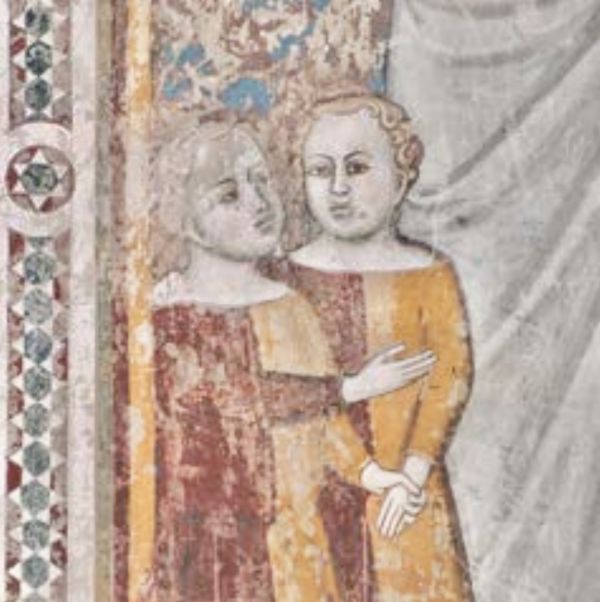Jesus urges the crowd to listen and observe what the scribes and Pharisees say, without doing according to their works, because of the obvious contradiction between their saying and doing.
The Lord also calls for humility and service.
The Poor Man of Assisi had made poverty the guiding motif of his life. We are not speaking only of material poverty, but first and foremost of spiritual poverty - with the numerous "sisters"... Humility, discretion, concealment; fleeing all forms of power and appearances, as the scribes and Pharisees loved to do - rebuked, in today's passage, by the Master Jesus.
"They say and do not do [...] All their works they do to be admired by the people" (Mt 23:3.5).
Francis was convinced that virtue must remain hidden, far from seeking admiration.
In the Sources, Celano reiterates:
"In this way Francis had rejected all glory that did not know Christ and had inflicted a radical repudiation on human praise.
He well knew that the price of fame diminished the secret price of conscience, and that it is far more harmful to abuse virtue than to lack it at all [...].
[We, on the other hand] patiently endure not being good, but we do not resign ourselves to not seeming so nor to not being believed so.
Thus we live completely in the pursuit of men's esteem, because we are nothing but men' (FF 723).
He continues, regarding the Poverello:
"Humble in demeanour, most humble in feeling, most humble in his own esteem.
By nothing could one distinguish that this prince of God held the office of superior, if not by this most shining gem, that is, that he was the least among the least.
This was the virtue, this was the title, this was the badge that indicated him as minister general.
His mouth knew no haughtiness, his gestures no pomp, his acts no ostentation" (FF 724).
Moreover, Francis, faithful to the Lord, "did not want to give anyone the title of 'father' or 'master', nor write it in his letters, out of respect for the Lord who said: 'do not call anyone father on earth, nor be called master'" (FF 1615).
So, the Minim loved to make himself a servant in the footsteps of Christ, as Clare herself practised in San Damiano among her sisters.
From the Legend, contained in the Sources, we learn:
"Clare, the primary stone and noble foundation of her Order, from the beginning studied to set the edifice of all virtues on the foundation of holy humility.
She promised holy obedience to blessed Francis, and never deviated in any way from this promise [...].
she would have wished to humbly submit rather than be at the head, and among the handmaids of Christ more willingly to serve than to be served.
[...] Compelled by blessed Francis, she finally assumed the government of the Women: and from this was born in her heart fear, not arrogance; and there grew not independence, but the spirit and practice of service.
For the more she sees herself elevated by these appearances of superiority, the lower she finds herself in her own esteem, more ready for duty, more humble even in outward appearance" (FF 3179)
«He who is greater among you shall be your servant» (Mt 23:11)
Tuesday 2nd wk. in Lent (Mt 23:1-12)












